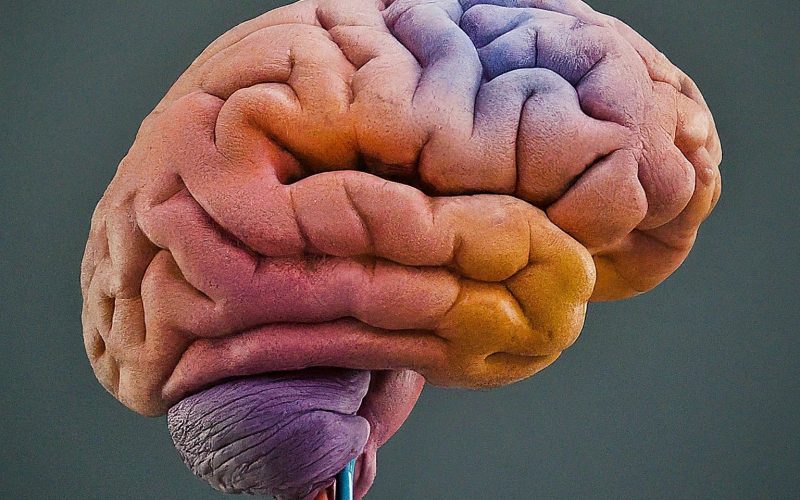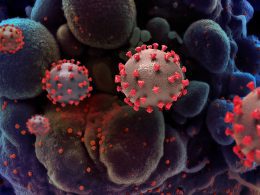Introducing Dr. Olivia Green:
Dr. Olivia Green is a board-certified gastroenterologist with a passion for gut health and its impact on overall well-being. For over 10 years, she’s been dedicated to helping patients understand the intricate connection between their gut microbiome and their health.
Headings:
- The Gut-Brain Axis: A Two-Way Street
- Meet Your Microscopic Roommates: The Gut Microbiome
- How Bacteria Talk to Your Brain: The Communication Channels
- Gut Health’s Influence on You: From Mood to Immunity
- Nourishing the Conversation: Tips for a Healthy Gut Microbiome
- The Future of Gut-Brain Research: Unlocking New Possibilities
Gut Bacteria & Their Impact
| Bacteria Function | Potential Health Benefits |
|---|---|
| Produce beneficial short-chain fatty acids (SCFAs) | Supports gut health, immune function, and potentially reduces inflammation. |
| Regulate inflammation | May reduce risk of chronic diseases like inflammatory bowel disease (IBD) and certain cancers. |
| Aid in nutrient absorption | Promotes optimal digestion, energy levels, and nutrient availability for the body. |
| Influence neurotransmitter production | May impact mood, sleep, cognitive function, and emotional regulation. |
Weaving the Story:
Imagine a constant dialogue happening inside you, a conversation that whispers secrets about your mood, digestion, and even your thinking. This isn’t some science fiction trope; it’s the very real exchange taking place within the gut-brain axis, a complex network connecting the trillions of bacteria residing in your gut with your central nervous system.
In this article, we’ll delve into this fascinating exchange between these microscopic gut microbes and their surprising influence on our overall health. We’ll explore the gut microbiome, the diverse community of bacteria that call your gut home, and how these tiny residents communicate with your brain.
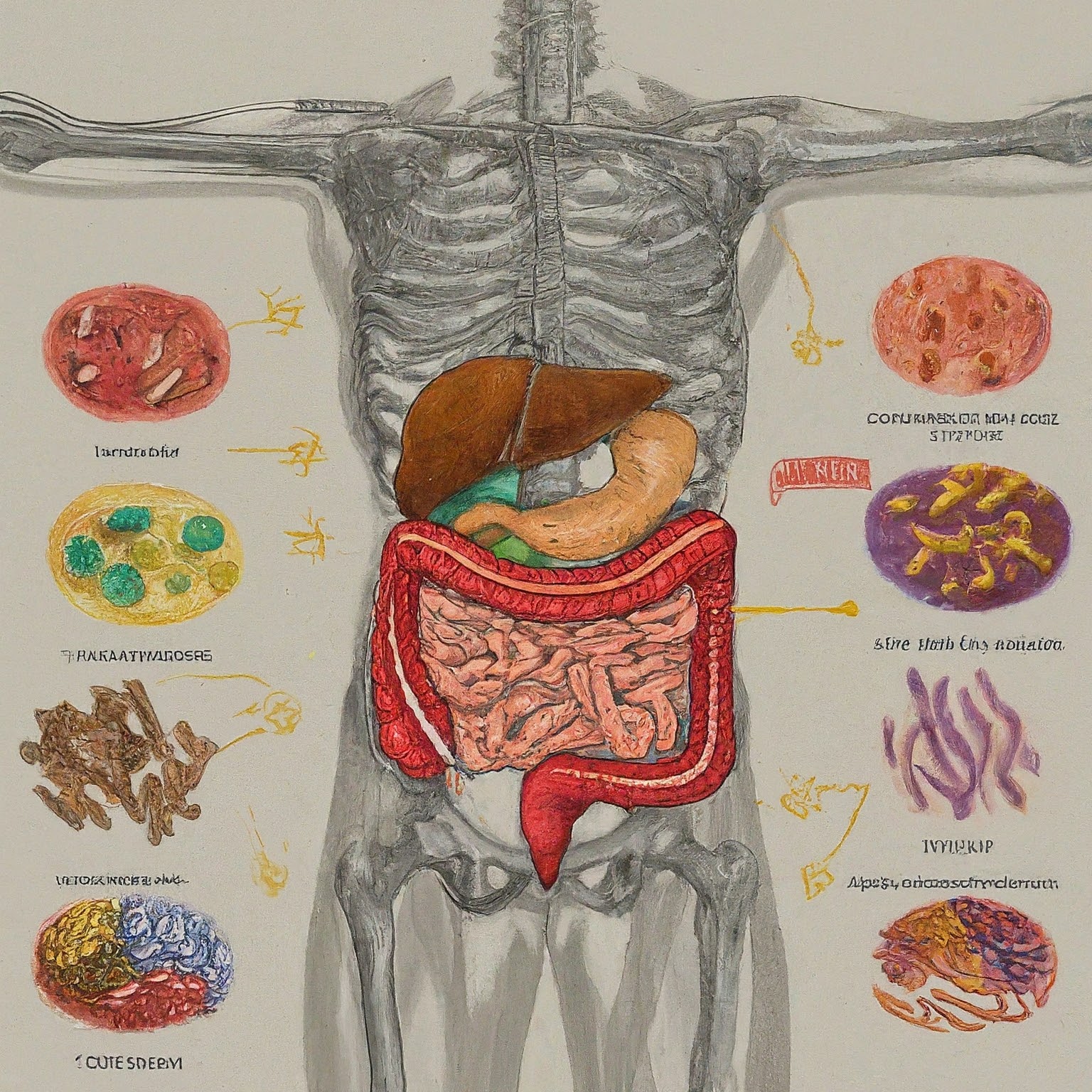
Meet Your Microscopic Roommates: The Gut Microbiome
The human gut is a teeming metropolis, teeming with trillions of bacterial residents. This diverse community, known as the gut microbiome, plays a crucial role in various aspects of our health, far beyond just breaking down food. Studies suggest a healthy gut microbiome can promote a strong immune system, aid in nutrient absorption, and even influence our mood and mental well-being.
The composition of your gut microbiome is unique, shaped by various factors like diet, genetics, and lifestyle choices. These bacteria constantly interact with each other and the lining of your gut, creating a delicate ecosystem. A balanced microbiome is essential for optimal health, while an imbalance can lead to digestive issues, inflammation, and even chronic diseases.
How Bacteria Talk to Your Brain: The Communication Channels
The gut and brain may seem like distant organs, but they’re constantly engaged in a lively conversation. This two-way communication occurs through several fascinating pathways:
-
The Nervous System: Your gut has its very own nervous system, often referred to as the “second brain” due to its complexity. This enteric nervous system contains over 500 million nerve cells, more than your spinal cord! It directly communicates with your central nervous system, sending signals about gut health, digestion, and the composition of your microbiome.
-
The Immune System: The gut is a major player in the immune system, housing a large number of immune cells. These cells constantly interact with the gut bacteria, monitoring their activity and sending signals to the brain about potential threats or beneficial interactions.
-
Hormones: The bacteria in your gut can produce a variety of hormones, including some that influence mood and behavior. For instance, certain gut bacteria are involved in the production of serotonin and dopamine, neurotransmitters that play a critical role in mood regulation.
These communication channels allow the gut to keep the brain informed about its state and influence various brain functions in return.

Gut Health’s Influence on You: From Mood to Immunity
The constant dialogue between your gut and brain means a healthy gut microbiome can have a surprisingly wide-ranging impact on your overall well-being. Here are some key areas where gut health can play a significant role:
- Digestion: This is perhaps the most well-known connection. A balanced gut microbiome ensures efficient digestion by breaking down food particles and aiding in nutrient absorption. An imbalance can lead to digestive issues like bloating, constipation, and diarrhea.
-
Mood and Mental Health: Mounting research suggests a strong link between the gut microbiome and mental health. Studies have shown a correlation between an unbalanced gut microbiome and conditions like anxiety, depression, and even chronic stress. The gut bacteria’s influence on the production of neurotransmitters like serotonin is believed to be a key player in this connection.
-
Cognitive Function: Emerging research is exploring a possible link between gut health and cognitive function. Some studies have shown that a healthy gut microbiome may be associated with improved memory, focus, and cognitive flexibility. While the exact mechanisms are still being unraveled, it’s possible that the gut-brain axis plays a role in regulating brain functions related to learning and memory.
-
Immune Function: A balanced gut microbiome acts as a critical line of defense, maintaining a strong immune system. The gut houses a large population of immune cells that interact with the bacteria, helping to differentiate between beneficial microbes and potential invaders. An imbalance in the gut microbiome can disrupt this delicate balance and potentially increase susceptibility to infections and inflammatory conditions.
-
Chronic Disease Risk: Research is ongoing, but some studies suggest a potential link between an unbalanced gut microbiome and an increased risk of chronic diseases like obesity, type 2 diabetes, and even certain cancers. While the exact mechanisms are still being investigated, it’s believed that chronic inflammation triggered by an unhealthy gut environment may play a role.
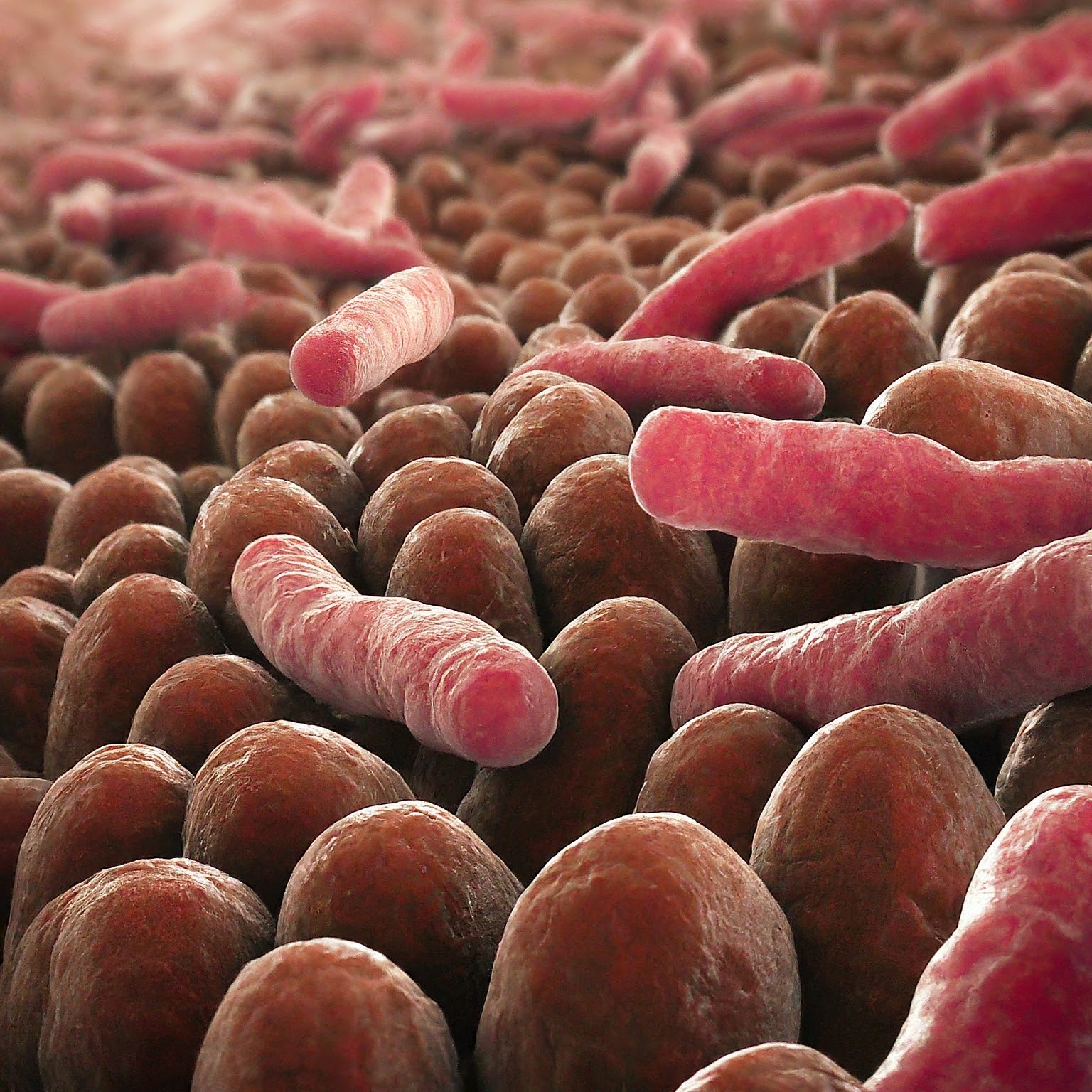
Nourishing the Conversation: Tips for a Healthy Gut Microbiome
Knowing the power of the gut-brain axis, it’s natural to wonder how we can cultivate a thriving gut microbiome and keep the conversation flowing positively. Here are some practical tips:
-
Embrace a Fiber-Rich Diet: Dietary fiber acts as a prebiotic, nourishing the beneficial bacteria in your gut. Aim to include plenty of fruits, vegetables, and whole grains in your diet to ensure a steady supply of fiber. Think colorful fruits and vegetables, legumes, and whole grains like oats, quinoa, and brown rice.
-
Consider Probiotics: Probiotics are live bacteria that offer health benefits similar to some of the strains naturally present in your gut. Consider incorporating probiotic-rich foods like yogurt, kimchi, or kombucha into your diet, or discuss probiotic supplements with your doctor. Probiotics can be a helpful way to introduce beneficial bacteria strains and support a diverse gut microbiome.
-
Manage Stress Levels: Chronic stress can disrupt the delicate balance of your gut microbiome. Practice stress-management techniques like yoga, meditation, or deep breathing to help keep your stress levels in check. By managing stress, you can create a more favorable environment for beneficial gut bacteria to thrive.
-
Prioritize Sleep: Sleep is essential for overall health, and it also plays a role in gut health. Aim for 7-8 hours of quality sleep each night to support a healthy gut microbiome. Adequate sleep allows your body to properly regulate hormones and other factors that can influence gut health.
-
Limit Processed Foods: Processed foods are often high in sugar, unhealthy fats, and artificial ingredients, all of which can disrupt the gut microbiome. Focus on consuming whole, unprocessed foods whenever possible. This means opting for fresh fruits and vegetables, lean protein sources, and whole grains over sugary drinks, packaged snacks, and excessive red meat.
-
Consider Antibiotics with Caution: While antibiotics are crucial for fighting infections, they can also wipe out beneficial gut bacteria in the process. Discuss the use of antibiotics with your doctor and explore alternative treatment options if possible. When antibiotics are necessary, taking steps to replenish gut bacteria afterward, such as consuming probiotics, can be helpful.
By incorporating these tips into your lifestyle, you can promote a healthy gut microbiome and potentially experience a positive impact on your overall well-being.
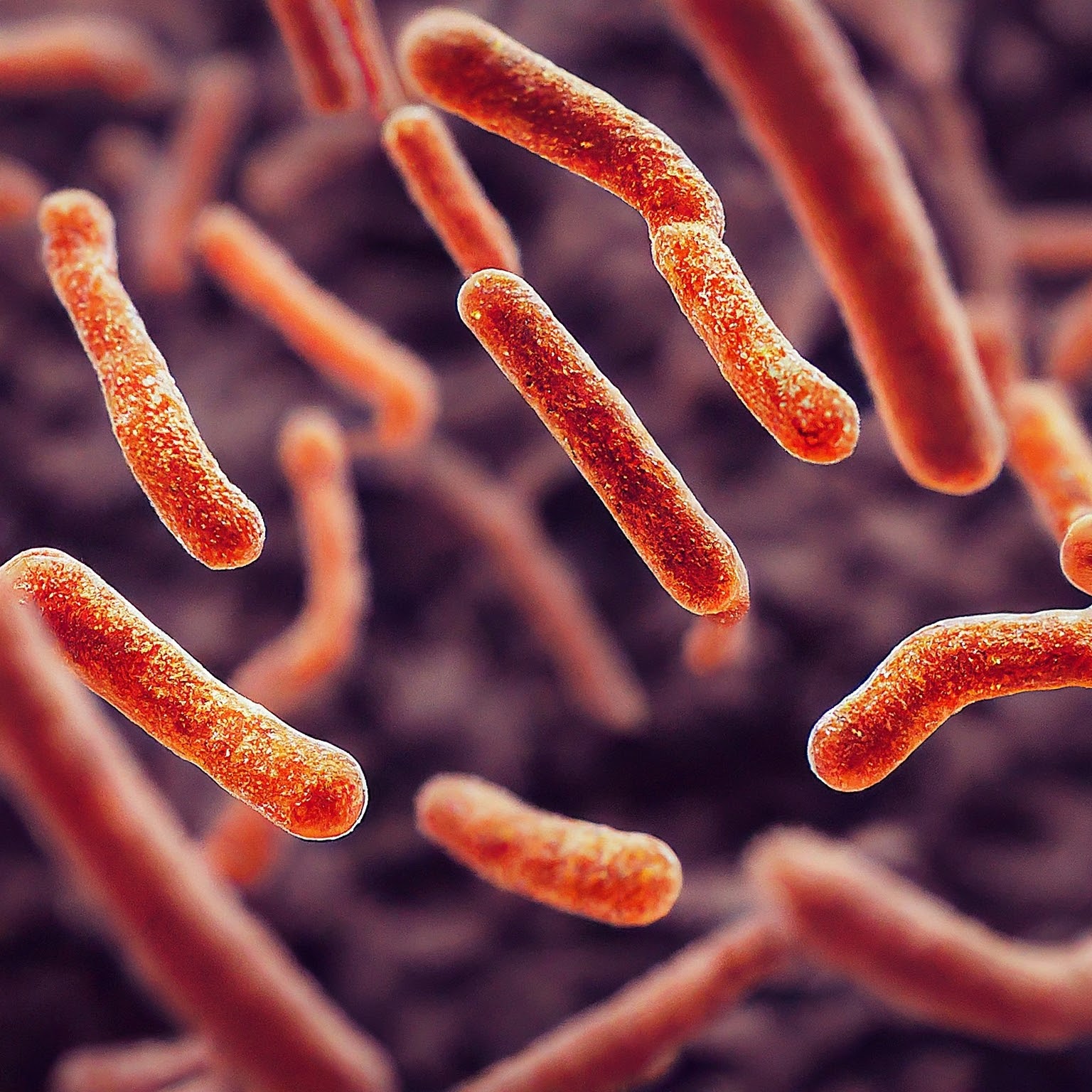
The Future of Gut-Brain Research: Unlocking New Possibilities
The field of gut-brain research is a rapidly evolving landscape, with exciting new discoveries constantly emerging. Here’s a glimpse into some of the potential future applications:
-
Personalized Medicine: Understanding the unique composition of an individual’s gut microbiome could pave the way for more tailored treatment plans for various health conditions, from digestive issues to mental health disorders. By analyzing an individual’s gut bacteria, doctors may be able to develop more targeted treatment approaches.
-
Probiotics for Mental Health: Research on the link between gut bacteria and mental health is ongoing, with the potential for developing new probiotic strains specifically targeted at improving mood and cognitive function. This could lead to the development of new probiotic treatments for conditions like anxiety and depression.
-
Gut Microbiome Testing and Analysis: As research progresses, gut microbiome testing may become more readily available, allowing individuals to gain insights into the composition of their gut bacteria and receive personalized recommendations for improving their gut health. Imagine a future where a simple test can provide valuable information about your gut bacteria and how to nurture a thriving gut ecosystem for optimal health.
The future of gut-brain research holds immense promise for revolutionizing healthcare and empowering individuals to take a more proactive role in managing their well-being. New discoveries and advancements in this field could lead to:
- Improved Diagnostic Tools: More accurate and efficient methods for diagnosing gut-related disorders and conditions.
- Targeted Nutritional Interventions: The development of personalized dietary recommendations based on an individual’s gut microbiome.
- Advanced Probiotic Therapies: The creation of more potent and effective probiotic strains for specific health conditions.
- Fecal Microbiota Transplants (FMT): Further refinement of FMT procedures to treat certain gut-related diseases. (Fecal Microbiota Transplants involve transplanting healthy gut bacteria from a donor to a recipient).
It’s important to note that FMT is a complex medical procedure and should only be performed under the supervision of a qualified healthcare professional.
Conclusion
The gut-brain axis is a fascinating and complex network that highlights the interconnectedness of our bodies and minds. By fostering a healthy gut microbiome, we can nurture a positive dialogue between our gut and brain, potentially experiencing a range of benefits in terms of digestion, mood, cognitive function, and overall health. As research continues to unlock the secrets of the gut-brain connection, we can look forward to even more exciting discoveries and personalized approaches to maintaining and optimizing our well-being.






